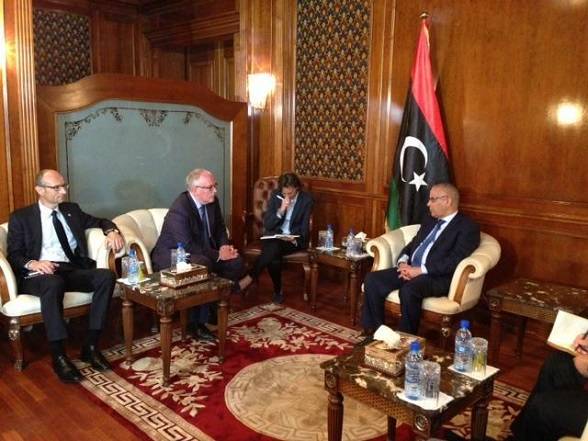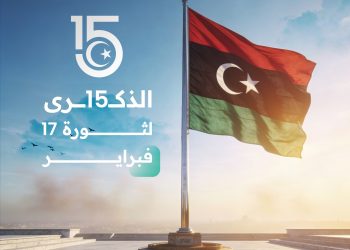By Hadi Fornaji.

Tripoli, 16 June 2013:
The Dutch Foreign Minister Frans Timmermans arrived in Tripoli this morning on a lightning visit for . . .[restrict]talks with the Prime Minister, Ali Zeidan. He also met with his Libyan opposite number, Mohamed Abdulaziz as well as with the Second Deputy President of Congress, Saleh Al-Makhzoum.
One of the areas discussed was border security and how the Netherlands could help.
The Netherlands is already working closely with the Libya Coast Guard and has supplied it with eight patrol craft. Thirty-two navy personnel have also being trained in the Netherlands on the use of the boats.
“Your security is our security,” he told Abdelaziz. “Security in the region, from Iran to Mali, is also beneficial to Europe,” he added. “It is extremely important to work together to counter the threat from extremists.”
During the talks, according to the Netherlands Foreign Ministry, Timmermans also expressed his concerns about “the precarious security situation” in Libya and the strength of the militias.
The Dutch Minister also met with non-governmental organisations advocating women’s rights, better access to justice and other goals.
This was his first visit, Timmermans told a small press conference following a lunch with representatives from Dutch companies operating in Libya, but he stressed that he wanted to see a much closer relationship between Libya and the Netherlands. His country would be looking to provide support and skills in certain niche areas. Meeting with Libyan officials, he said that there were opportunities for economic cooperation, for example in the development of Libyan ports, agriculture, water management and logistics.
Timmermans said he was impressed by the government’s commitment to human rights including those of women and children, Conveying his government’s condolences at the killing of soldiers in Benghazi last week, he said that the rule of law in Libya must be supported, not least because a stable Libya would contribute to stability inn the region. But despite the security issues he said he nonetheless believed that the reality of Libya was much better than what was presented in the media outside the country.
The Dutch Minister was in Libya on the first leg of a North Africa and Middle tour that will also take him to Tunisia, Palestine/Israel and Turkey. He left for Tunis later in the afternoon. [/restrict]







